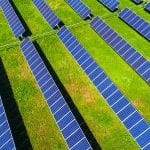Around The Web
Israel moves to ban 'immoral' animal fur trade
Nobel Prize for Medicine goes to Hepatitis C discovery
Tasmanian Devils reintroduced into Australian wild
Amazon near tipping point of switching from rainforest to savannah – study
Climate crisis and logging is leading to shift from canopy rainforest to open grassland
Much of the Amazon could be on the verge of losing its distinct nature and switching from a closed canopy rainforest to an open savannah with far fewer trees as a result of the climate crisis, researchers have warned.
Rainforests are highly sensitive to changes in rainfall and moisture levels, and fires and prolonged droughts can result in areas losing trees and shifting to a savannah-like mix of woodland and grassland. In the Amazon, such changes were known to be possible but thought to be many decades away.
Continue reading...3,000 articles, 100m readers: a year of our best environment journalism
With a piece of environmental journalism published every three hours, the Guardian is a leading voice in the fight to save the planet
- Support Guardian journalism today, by making a single or recurring contribution, or subscribing
Since the Guardian pledged a year ago to give the climate crisis even greater priority, we have published a piece of environmental journalism on average every three hours. Greenhouse gas emissions, heatwaves, wildfires, melting polar ice, floods, droughts, the annihilation of wildlife, air pollution … the problems grow more severe every year.
Of course, 2020 has been dominated by the coronavirus pandemic, but even here the correlation with environmental destruction is clear.
Continue reading...The Guardian’s environment pledge
Last year, we vowed to prioritise climate journalism and cutting our own emissions. So much for promises: how are we actually doing this?
In 2019, the Guardian made a pledge in service of the planet. We declared that the escalating climate crisis was the defining issue of our lifetime, and that quality, trustworthy reporting on the environment was an important tool to confront it. We promised to provide journalism that shows leadership, urgency, authority and gives the climate emergency the sustained attention and prominence it demands.
Continue reading...Global heating: the vital statistics from a warming world
As the climate crisis intensifies, we publish a regularly updating dashboard of key indicators measuring the health of the planet
Continue reading...Our world is facing irreversible destruction – and still there's no urgency in Australian climate policy | Lenore Taylor
The Guardian is prioritising the environment both in editorial and commercial decisions. We know the situation is dire but that the worst can yet be averted
For Australians, the national trauma of fires burning through 18 million hectares of bushland earlier this year is raw and ongoing. But since then the US west coast and Siberia have also burned. China, Bangladesh, India and parts of Africa have suffered catastrophic flooding. Death Valley recorded possibly the highest ever temperature on Earth, at 54.4C. In February the Antarctic temperature rose above 20C for the first time. In March the Great Barrier Reef suffered its third mass bleaching in five years. In June it was 38C inside the Arctic Circle.
None of these events can be attributed entirely to global heating, but scientists are clear that their frequency and ferocity are signs of impending climate catastrophe, of irreversible destruction. What they have warned of for decades is coming to pass.
Continue reading...How the Guardian plans to reach net zero emissions by 2030
Since we launched our climate pledge last year, we have been working hard to make it a reality
- Support Guardian journalism today, by making a single or recurring contribution, or subscribing
Last year was the easy bit – we made a lot of promises to reduce our carbon footprint and become a more sustainable business. Since then we have been trying to figure out how to make good on these commitments. While Guardian journalism remains our best tool for confronting the climate emergency, we are doing everything we can in our business too to ensure that we practise what we preach.
We said we would undertake a full audit of our carbon emissions, and have now been through this exercise twice, starting with our 2018-19 financial year and then trying to improve our understanding and the accuracy of our data for our 2019-20 figures.
Continue reading...The Guardian's climate promise: we will keep raising the alarm
Global heating is the emergency of our times. So we are taking action to confront it
- Read the Guardian’s climate pledge
- Support Guardian journalism today, by making a single or recurring contribution, or subscribing
The global climate crisis is the emergency of our times. Amid all the fear and sadness of 2020, it remains the overwhelming long-term threat to our planet and to everyone’s health and security.
That is why we promise to keep reporting on it, raising the alarm and investigating the crisis and possible solutions, until we begin to see genuine systemic change.
Continue reading...Graph of the Day: NSW renewables hit record high of 50.2 per cent
 New South Wales joins renewable record spree with combination of solar and wind briefly delivering more than half the state's electricity needs for the first time.
New South Wales joins renewable record spree with combination of solar and wind briefly delivering more than half the state's electricity needs for the first time. Plans for Australian renewable hydrogen plant gain ground with EPC appointment
 Infinite Blue Energy Group inks deal with Petrofac to conduct engineering, procurement and design for planned $350 million Arrowsmith green hydrogen plant.
Infinite Blue Energy Group inks deal with Petrofac to conduct engineering, procurement and design for planned $350 million Arrowsmith green hydrogen plant. Tasmanian devils released into sanctuary north of Sydney in step towards 'rewilding'
If the 30 animals thrive in the predator-free area in the Barrington Tops, it could be a step towards reintroduction on Australia’s mainland
Conservationists working with disease-free Tasmanian devils have taken the next step in what they hope will be a “rewilding” project that could eventually see the species reintroduced to the Australian mainland.
About 30 devils, free of devil facial tumour disease, have been released into a 500ha, predator-free sanctuary in the Barrington Tops national park, north of Sydney.
Continue reading...AC versus DC: Why Australia should re-think its network plans
 Why build new interconnectors, or upgrade existing interconnectors?
Why build new interconnectors, or upgrade existing interconnectors? Sustainability Consultant Carbon Finance, Carbon Care Asia – Singapore
Asia-Pacific Carbon Team Lead, Conservation International – Singapore
Operational Policy Analyst, Ministry for Primary Industries – Wellington
Graduate Energy Analyst, Genesis – Auckland
WA Business Development Manager, Greencollar – Perth
SunDrive gets funding to manufacture new breed of solar cells in Australia
 SunDrive Solar's high efficiency solar cell technology moves a step closer to being manufactured in Australia at scale after winning $3m ARENA grant.
SunDrive Solar's high efficiency solar cell technology moves a step closer to being manufactured in Australia at scale after winning $3m ARENA grant. 


